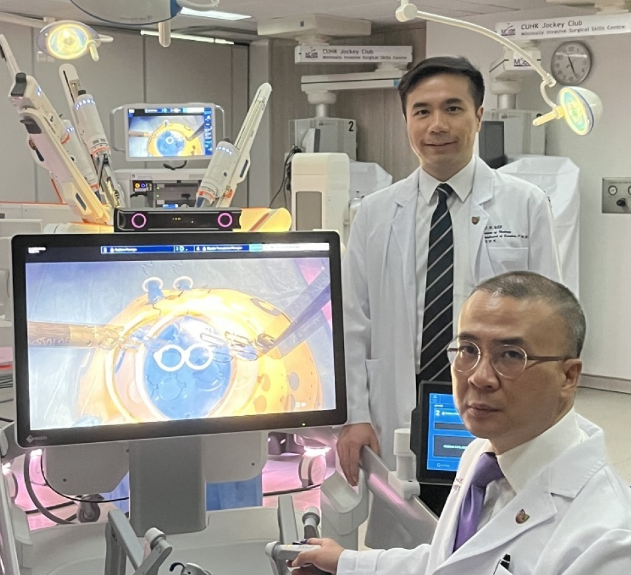Yes, you can secure a job in China after studying medicine there, with proper licensing and language proficiency.
Table of Contents
Eligibility Criteria for Medical Graduates in China
Medical Licensing Examination in China
To practice medicine in China, medical graduates must pass the National Medical Licensing Examination (NMLE). The NMLE is divided into two parts: the written examination and the clinical skills examination. The passing score for each part is typically set at 60%. Preparation for this exam requires a deep understanding of both theoretical knowledge and practical skills. Graduates should allocate at least six to twelve months for exam preparation. The exam fee ranges from 1,000 to 1,500 RMB, depending on the province.

Language Proficiency Requirements
Language proficiency is critical for medical practice in China. Non-native speakers must prove their proficiency in Mandarin by passing the HSK (Hanyu Shuiping Kaoshi) Level 6, which demonstrates an advanced level of Chinese language competency. Achieving this level requires, on average, 2-3 years of dedicated study for English speakers. The cost of HSK exams varies from 400 to 700 RMB, depending on the level.
Residency Status and Work Permits for Foreign Graduates
Foreign medical graduates looking to work in China must secure a residency status and work permit. The process involves obtaining a Z visa, which is converted into a residence permit upon arrival in China. The overall cost, including visa fees and health examinations, can range from 2,000 to 4,000 RMB. Additionally, foreign doctors must find a sponsoring hospital or medical institution that can vouch for their employment. The processing time for work permits and residency applications can take up to 3 months, necessitating early application.
Application Process for Medical Jobs in China
Searching for Job Opportunities
To find medical job opportunities in China, leveraging online platforms such as Zhaopin and LinkedIn is essential. Key hospitals and medical institutions often post vacancies on their websites, with detailed requirements and benefits. Networking with alumni and attending medical job fairs in China can also provide valuable leads. It’s crucial to start your job search at least 6 to 12 months before your intended employment date to account for the time-consuming visa and work permit processes.
Documentation and Application Submission
The application for medical positions in China requires a comprehensive set of documents:
- A detailed CV highlighting your qualifications, experiences, and skills
- Medical degree and other educational certificates, translated into Chinese by a certified translator
- Proof of passing the Chinese Medical Licensing Examination
- HSK certification for Chinese language proficiency
- Two letters of recommendation from previous employers or professors
Applicants should expect to spend approximately 500 to 1,000 RMB on document translations and certifications. Ensure all documents are submitted before the application deadline, typically 2 to 3 months before the start date of the job position.
Interview Preparation and Tips
Successful applicants will be invited for an interview, which may be conducted in-person or via video conference. Preparation is key:
- Research the institution and its department thoroughly to tailor your responses to their values and needs.
- Practice answering common medical interview questions in Mandarin if the interview is conducted in Chinese.
- Prepare questions to ask about the role, team, and institution to demonstrate your interest and engagement.
Recommend 10 medical schools with Chinese signatures
| Medical School | Location |
|---|---|
| Peking University Health Science Center | Beijing |
| Shanghai Jiao Tong University School of Medicine | Shanghai |
| Fudan University Shanghai Medical College | Shanghai |
| Zhongshan University Sun Yat-sen College of Medical Science | Guangzhou |
| Sichuan University West China School of Medicine | Chengdu |
| Huazhong University of Science and Technology Tongji Medical College | Wuhan |
| Zhejiang University School of Medicine | Hangzhou |
| Harbin Medical University | Harbin |
| China Medical University (PRC) | Shenyang |
| Jilin University Norman Bethune College of Medicine | Changchun |
Working as a Foreign Medical Professional in China
Scope of Practice and Specialization
When working in China, foreign medical professionals must adhere to a clearly defined scope of practice. This scope is determined by the Chinese Medical Licensing Examination results, the specific needs of the hiring institution, and any additional certifications the professional may hold. Specializations in high demand include cardiology, oncology, and pediatrics, reflecting the country’s public health priorities.
To practice in a specialized field, professionals must provide evidence of their qualifications and experience, including board certification from their home country and any relevant fellowship training. The process of credential verification and approval can take up to 6 months and may incur costs ranging from 2,000 to 5,000 RMB for document translation and certification fees.
Understanding the Healthcare System in China
China’s healthcare system is a complex mix of public and private institutions, with significant regional variations in quality and accessibility. Foreign medical professionals must navigate this system, understanding both the bureaucratic structure and the practical aspects of medical service delivery.
The public healthcare system, which serves the majority of China’s population, is funded by a combination of government support, social insurance, and out-of-pocket payments. Doctors in public hospitals often see a high volume of patients, with daily consultations potentially exceeding 40 to 50 patients. In contrast, private healthcare facilities offer a lower patient-to-doctor ratio but may require more in-depth cultural and language skills to cater to a diverse clientele.
Cultural and Ethical Considerations in Medical Practice
Cultural sensitivity and an understanding of local medical ethics are paramount for success in China’s medical field. Informed consent, patient confidentiality, and end-of-life care are areas where cultural norms may differ significantly from those in Western countries.
Foreign doctors must be adept at navigating discussions about treatment options and prognosis with patients and their families, respecting the collective decision-making process often observed in Chinese families. Additionally, building trust with patients—a critical aspect of medical practice—can be more challenging for foreign professionals and requires patience, cultural understanding, and effective communication skills.
The integration of Traditional Chinese Medicine (TCM) into clinical practice is another unique aspect of working in China. Medical professionals should be open to learning about TCM principles and practices, as patients may use these alongside or in place of Western medical treatments.
Salary and Benefits for Medical Professionals in China
Comparative Salary Analysis by Region and Specialization
Salaries for medical professionals in China can vary significantly based on the region and the practitioner’s specialization. Here are some key points to consider:
- Eastern regions like Shanghai, Beijing, and Guangzhou typically offer higher salaries due to the higher cost of living and the concentration of wealth in these areas. Salaries in these cities can range from 30,000 to 80,000 RMB per month for specialized practitioners.
- Rural and western regions offer lower salaries, with monthly earnings ranging from 10,000 to 30,000 RMB, reflecting the lower cost of living and economic development in these areas.
- Specializations in high demand, such as cardiology, neurology, and oncology, command higher salaries, often exceeding 100,000 RMB per month in top-tier hospitals and private clinics.
Government and Private Sector Employment Benefits
Working in China’s healthcare sector, whether in government-run hospitals or private clinics, comes with a range of benefits. These include:
- Housing allowances or subsidized accommodation, especially in public institutions, to attract talent to less developed areas.
- Comprehensive health insurance plans covering a wide range of medical treatments and procedures.
- Annual leave and public holidays, with typical vacation time starting at 10 days per year, increasing with tenure.
- Continuing education opportunities, with institutions often sponsoring or subsidizing advanced training and international conferences.
- Performance bonuses and overtime pay, which can significantly increase the total annual compensation, especially in private sector roles.
Foreign medical professionals working in China may also receive additional benefits designed to attract international talent, such as:
- Relocation allowances to cover the cost of moving and settling in China, which can range from 10,000 to 50,000 RMB.
- Language training support to help with Mandarin proficiency, crucial for integrating into the healthcare system and society.
- Assistance with visa and work permit processes, ensuring a smooth transition to working and living in China.
Career Advancement Opportunities for Medical Graduates
Continuing Medical Education (CME) in China
In China, Continuing Medical Education (CME) is a requirement for all healthcare professionals seeking to maintain their medical licenses. CME programs are available across a wide range of specialties and are designed to keep medical practitioners up to date with the latest advancements in medical science, technology, and ethics.
- Annual CME requirements vary by specialty, with physicians typically required to complete 20 to 50 hours of education annually.
- Costs for CME programs can range from free online courses to more expensive in-person seminars and workshops, costing upwards of 2,000 RMB.
- Popular CME providers include universities, professional societies, and online platforms offering courses in both Chinese and English.
Pathways to Specialization and Further Studies
For medical graduates looking to specialize or pursue further studies in China, several pathways are available:
- Residency programs in China can last 3 to 5 years, depending on the specialty, with competitive entry for the most sought-after fields like surgery and internal medicine.
- Fellowship programs offer opportunities for super-specialization, requiring an additional 1 to 3 years of study post-residency.
- Tuition fees for these programs vary significantly, from 30,000 RMB to 100,000 RMB per year, with some institutions offering scholarships or stipends.
Networking and Professional Development Resources
Networking and professional development are crucial for career advancement in the medical field. In China, numerous resources can help medical graduates connect with peers and leaders in their field:
- Professional associations such as the Chinese Medical Association provide forums for exchange, collaboration, and advocacy.
- Medical conferences and seminars held throughout the year offer opportunities to learn about the latest research and clinical practices while meeting other professionals.
- Online platforms and social media groups specific to medical professionals in China can be invaluable resources for advice, job postings, and mentorship opportunities.

Challenges and Solutions for Foreign Medical Graduates in China
Navigating the Legal and Administrative Framework
Foreign medical graduates in China face a complex legal and administrative landscape, which includes obtaining the necessary licenses and work permits, as well as understanding the healthcare regulations and patient rights.
- Solution: Engaging a legal advisor or consulting with professional organizations experienced in assisting foreign medical professionals can be invaluable. Preparation and submission of paperwork should begin at least 6 months in advance to accommodate the 3 to 4-month processing time for visas and work permits. The cost for these services can range from 5,000 to 10,000 RMB, depending on the complexity of the case.
Overcoming Language and Cultural Barriers
Language and cultural differences pose significant challenges for foreign medical graduates working in China, impacting communication with patients and colleagues and understanding of the healthcare system.
- Solution: Enrolling in Mandarin language courses is essential, with a focus on medical terminology. Many institutions offer language training programs tailored for medical professionals, with costs varying from 2,000 to 10,000 RMB for intensive courses. Additionally, seeking mentorship from colleagues who have successfully navigated these challenges can provide practical advice and support.

